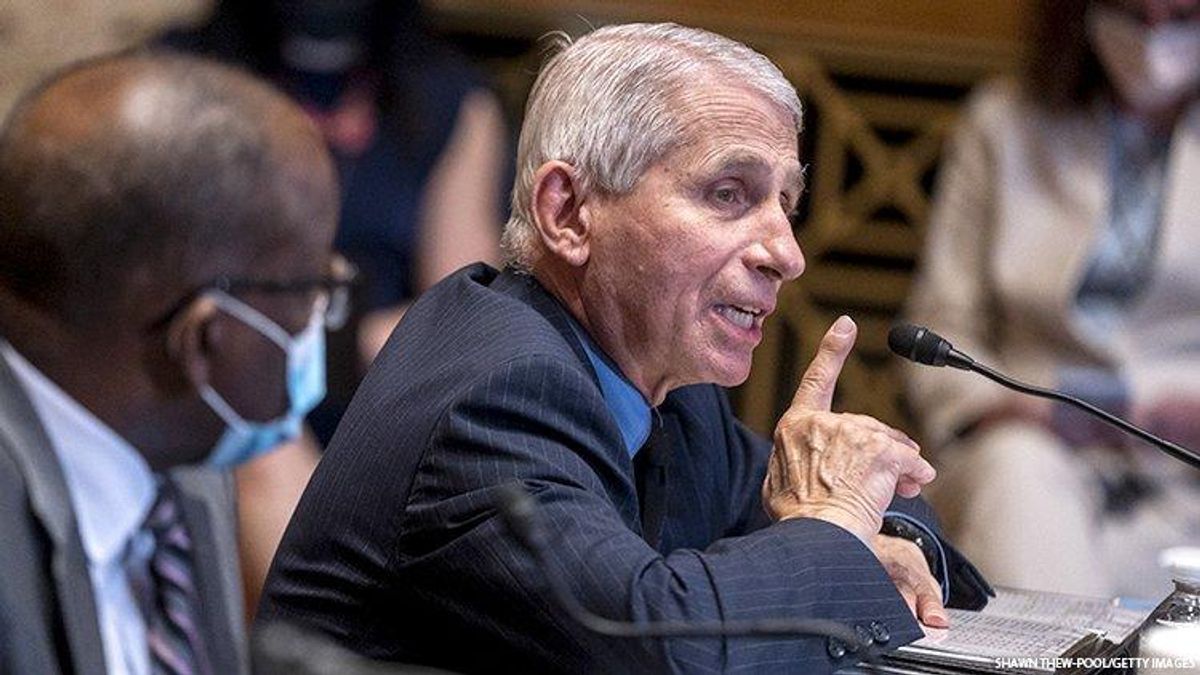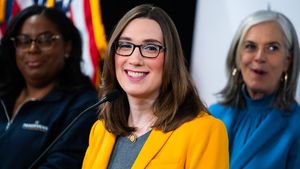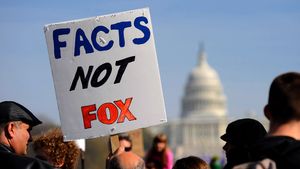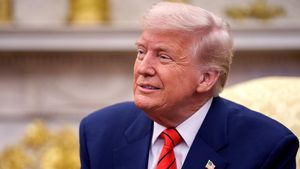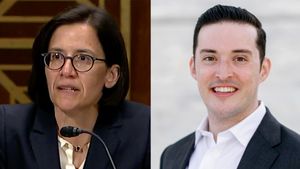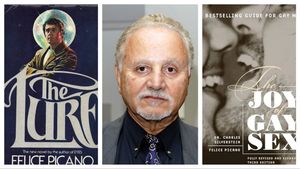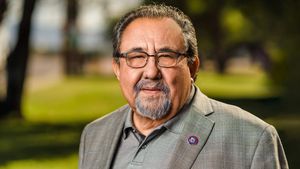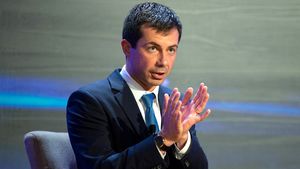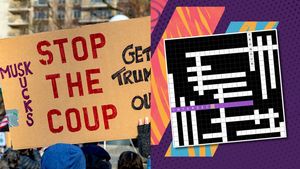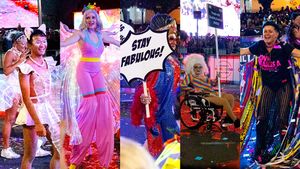Early last month, we tried to clear up the misconception that monkeypox, a.k.a. MPV, was a “gay disease," specifically citing the misleading headlines by some media outlets that screamed about “gay men” and the virus.
We wrote that things got so bad with MPV that the United Nations’ AIDS agency called out some of the coverage about the virus as “racist and homophobic,” and added that some of the reporting is “exacerbating stigma and undermining the response to the growing outbreak.”
At the time, we reached out to Dr. Demetre Daskalakis, the Centers for Disease Control and Prevention’s director of the Division of HIV/AIDS Prevention, who explained, “Unfortunately, the virus hit the social network of gay men first, but it will not stay confined to gay men if it spreads. Anyone can get it, and anyone can get monkeypox through skin contact with sores, touching objects, and by respiratory. The virus does not discriminate and doesn’t care how or whose body it enters.”
Since that time, the number of MPV cases has swelled among queer men. And while the virus is still not considered a queer disease, there is no doubt who is being affected the most by monkeypox — gay, bisexual, and queer men. As a result, there have been comparisons of the outbreak to the early days of the AIDS epidemic.
While no one has died of the outbreak in the U.S. right now, men are becoming very ill, treatment options and vaccines seem to be hard to get, the government response seems to be slow and meager at best, and fear is raging among our community.
And while MPV isn’t a sexually transmitted disease, mostly men have gotten it in the U.S. as a result of sexual activity that can include penetrative encounters as well as oral sex, according to Dr. Daskalakis. The virus is spread through skin-to-skin contact, respiratory secretions, and contact with items that were touched by MPV lesions or secretions, and it can be transmitted from a pregnant person to a fetus.
The Los Angeles Times has reported that while vaccines are available, they will be “extremely limited.” And according to NBC News, while vaccines are available in New York City, “Thousands of appointments for Sunday's mass vaccine drive were snatched up Friday following a 6 p.m. online drop. All 9,200 slots were scooped up in less than 10 minutes, but city officials promised to make 4,000 additional.”
Plus magazine recently reported, “Following complaints about the federal government's slow response to the monkeypox (MPV) outbreak, the U.S. Department of Health and Human Services announced on Friday it ordered another 2.5 million doses of the vaccine.
“Further, combined with a July 1 order of similar size, the government expects 7 million MPV doses to be part of its available supply until mid-2023. But many suffering from MPV — predominantly men who have sex with men — or those concerned they could catch it, are justifiably more concerned with the present.”
There have been so many confusing answers about what is going on and why the U.S. hasn’t been better prepared. For clarity, we reached out to America’s physician, Dr. Anthony Fauci, to try and get a better sense of why there has been so much trouble to date with the vaccine and treatment options, and what lies ahead.
Recently, Dr. Fauci said that Denmark holds a "significant" supply of MPV vaccines that could help supply the world. We asked Dr. Fauci, what do we need to do immediately to move those vaccines to where they're needed most, especially to LGBTQ+ population centers where the disease is expanding fastest, with significant undercounting?
“We certainly need to get those vaccines here as quickly as we possibly can,” Fauci began. “As of last week, Denmark sent 150,000 doses On Monday 130,000 additional vaccines were sent. And I was told that by the end of July or sooner, 740,000 doses will be delivered. So by the end of the month, we should have over a million vaccines.”
“It was really important in the early stages that we recognize that this disease was an important problem for gay men, and we did not have enough to fill the need and ready to be distributed,” Fauci explained. “That deficit is being corrected.”
Fauci added that there are millions more in bulk form at the vaccine manufacturer, Bavarian Nordic in Denmark. “They are taking that material and putting it into vials so that it can be shipped. Those additional doses will fill in some of the important gaps, which we know has been troubling situation to the gay community, and understandably so. We are aiming to get distribution of vaccines in proportion to those who need it most.”
With all the delays, confusion, and stigma, etc., gay men feel in some respects this is just becoming a repeat of what happened decades ago with HIV. What could Fauci say to reassure queer men that this is not the same?
“Well, I hope it is not. In many respects, it is quite different. In the very early days between 1981-1984, we didn’t know what the infecting agent was. And then, in 1983-1984, we identified HIV, and the first treatment, AZT, wasn’t available until 1987, and it wasn’t until 1996 that the triple combination of drug cocktails began to help put the disease at bay. Another difference, we still don’t have a vaccine for HIV; however, we do have good preventative measures,” he said.
“Now compare that to monkeypox. We know the agent, we have diagnostics to treat it, and we have a vaccination for it. However, with monkeypox, while we have interventions, we have to do a better job in getting the treatments to people who need them, and that’s primarily, right now, the gay community.”
“Unfortunately, while it is affecting gay men now, we have to address the situation without provoking stigma of the disease," he continued. "Right now, and I mean right now, we are aware that the reality is that monkeypox is predominately affecting gay men, some with multiple sex partners who are not sure of their partner’s status. So we have been alerting the gay community about the spread and therapy. And we must make sure we don’t have stigma in public. Stigma is the enemy that we can’t have interfering with the message of how to avoid and treat monkeypox.”
Why haven’t we, as a country, learned some lessons from the early years of AIDS as well COVID about the lack of immediate response and not more quickly executing delivering an ample supply of testing, treatments, and vaccines?
“Those are all different circumstances, but the lesson is that implementation is really, really important,” Fauci started. “First, with HIV, when we did get interventions — diagnostics, good therapies, and PrEP — there is still a disparity in implementation of this, particularly, in the brown and Black communities and in Southern states in the country. The lesson learned is that you have to have implementation and get appropriate distribution to the people who need it most.”
“With COVID, we have a good vaccine, good diagnostics, and therapies. Where we haven’t done well is with implementation. Only 67 percent of the American population has been vaccinated, and only half have received only their first dose. Which shows you can have good intervention but not great implementation, and that it’s not the fault of public health officials, it's just that there’s a vast number of people who won’t get vaccinated.”
Fauci added that with MPV, we do have testing, and five companies developing “tens and tens and tens of thousands of tests. We have commercial involvement and a vaccine; however, the issue is getting the vaccine to people who need them without the lines we have seen forming to get the vaccine. Again, we could have done better getting them to people more quickly.”
“We also have antivirals, and the CDC and [Food and Drug Administration] are trying to diminish bureaucratic obstacles required to get the materials to people who need it. Many physicians have had difficulty filling out all the paperwork [to get the treatment drug] TPOXX to patients. We have to do better to diminish all the paperwork involved.”
Finally, New York City Mayor Eric Adams suggested we should only be administering the first of two shots of vaccines as the second shot can be withheld for up to two years. Did Fauci feel this was true and if that one dose would provide widespread efficacy against the disease?
“The full component recommended by the CDC, based on an adequate response, is two doses. But if there is an initial shortage of doses, it’s best to deliver the first doses to as many people as possible,” Fauci said. “I wouldn’t say two years for efficacy, but maybe a few months. Because we have millions of vaccines on the way soon, then the right way forward is getting the first dose out, with the anticipation that there will be a reasonable short period of time for the second. And by the way, two doses are needed. Just one will not provide the proper protection.”
John Casey is editor at large for our sister publication, The Advocate, where this article originally published. Views expressed in opinion articles are those of the writers and do not necessarily represent the views of The Advocate, Plus, or our parent company, Equal Pride.
